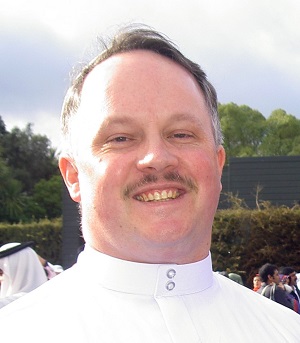 Muslims celebrated the Birthday of the Nobel Prophet (Milad Al Nabi) on Monday, January 13, 2014.
Muslims celebrated the Birthday of the Nobel Prophet (Milad Al Nabi) on Monday, January 13, 2014.
Prophet’s Birthday has a particular meaning for Muslims that cannot really be bound to a single day. But we find great inspiration in reviewing the birth and biography of the Prophet on this occasion.
As the Bosnian Imam Camil Avdic wrote in ‘A Heritage of East and West’ (2006): “There is a moral in them for the Muslims as individuals and as bearers of a truly universal world order, for which they are requested to struggle and sacrifice.” ‘
Moral rectitude
In other words, the life of the Prophet, his birth in particular, serves to remind us all to strive for higher ethical goals, to study and recite the Holy Quran, and to pray to the Almighty with sincerity and humility.
We live in an era in which Muslims around the world are faced with serious challenges, including political, economic, theoretic and practical.
The life of the Prophet reminds us of his great charity and profound philosophy. We remember our common and internationalist bonds that Islam inculcates across racial, ethnic, tribal, linguistic or class lines.
Consequently, we gather to read the sacred Quran in classical Arabic but recall these events (whether in listening to speeches or reading literature) in our variegated languages and vernacular idioms, such as Arabic, English, Urdu and so forth.
There is quite literally something for everybody.
Auspicious time
In a very real sense, it is an auspicious time for spiritual rejuvenation for every one of us, in as much as we review the events from the biography of the Prophet and from the dawn of Islam as we practice it today.
Prophet Mohammed (his full name is Abu Al Qasim Mohammed bin Abd Allah bin Abd Al Muttalib bin Hashim), was born in Mecca in central Arabia circa 570 of the Common Era.
We recall the inception of Islam in the Holy City of Mecca and those critical first years (over a decade) of bitter persecution and the attempt to stifle its divine call in its budding stage.
Slowly, Mohammed began to preach “la ilaha illa-llah” (There is no God but Allah) and declared that he himself was the final Prophet and Messenger of God in the same manner as earlier Prophets such as Abraham, Moses, Jesus and others found in the Old and New Testaments of the Bible.
Oneness Doctrine
We consider the Emigration or Hijra, a new Chapter in the historic development of Islam, and the protracted struggles such as Badr, Uhud and the Siege of Medina.
All these culminate in the capture of Mecca, the foundational stepping stone for the expansion of the call for Tawhid (Oneness) throughout Arabia and the rest of the world.
‘Mohammed’ in Arabic means “One who is praiseworthy” and certainly the Prophet is praiseworthy.
He is universally believed by Muslims to be the last and final Messenger of God; the one who restored the original monotheistic religion of Adam and Eve (Hawa) in an undiluted form.
The Holy Quran
The revelations he received and transmitted were assembled into the modern book form after his death as the Holy Quran or Recitation.
Our faith of Islam is built upon this Prophet and this compendium: Islamic Law or ‘Shariah’ is based on the edicts and principles of the book, and on the customs or ‘Sunnah’ of Mohammad himself.
However ‘Islam’ is not merely a series of empty rituals or slavishly followed religious traditions. It is a complete code of life for conscientious Muslims, indeed for all mankind, providing guidance and spirituality.
Imam Avdic summarised this point well, when he said, “A strong character means to be aware of your place in History.”
In past years, this event and the associated festivities have been well attended by local Muslims resident across the breadth of New Zealand.
People from smaller rural locations have always made a special effort to attend the Milad functions in the larger towns and cities.
Through the years, this has proven to be a most popular Islamic Holy Day.
Abdullah Drury is a former social secretary of the Muslim Association of Canterbury. He lives in Hamilton. Email: abdullah@xtra.co.nz




